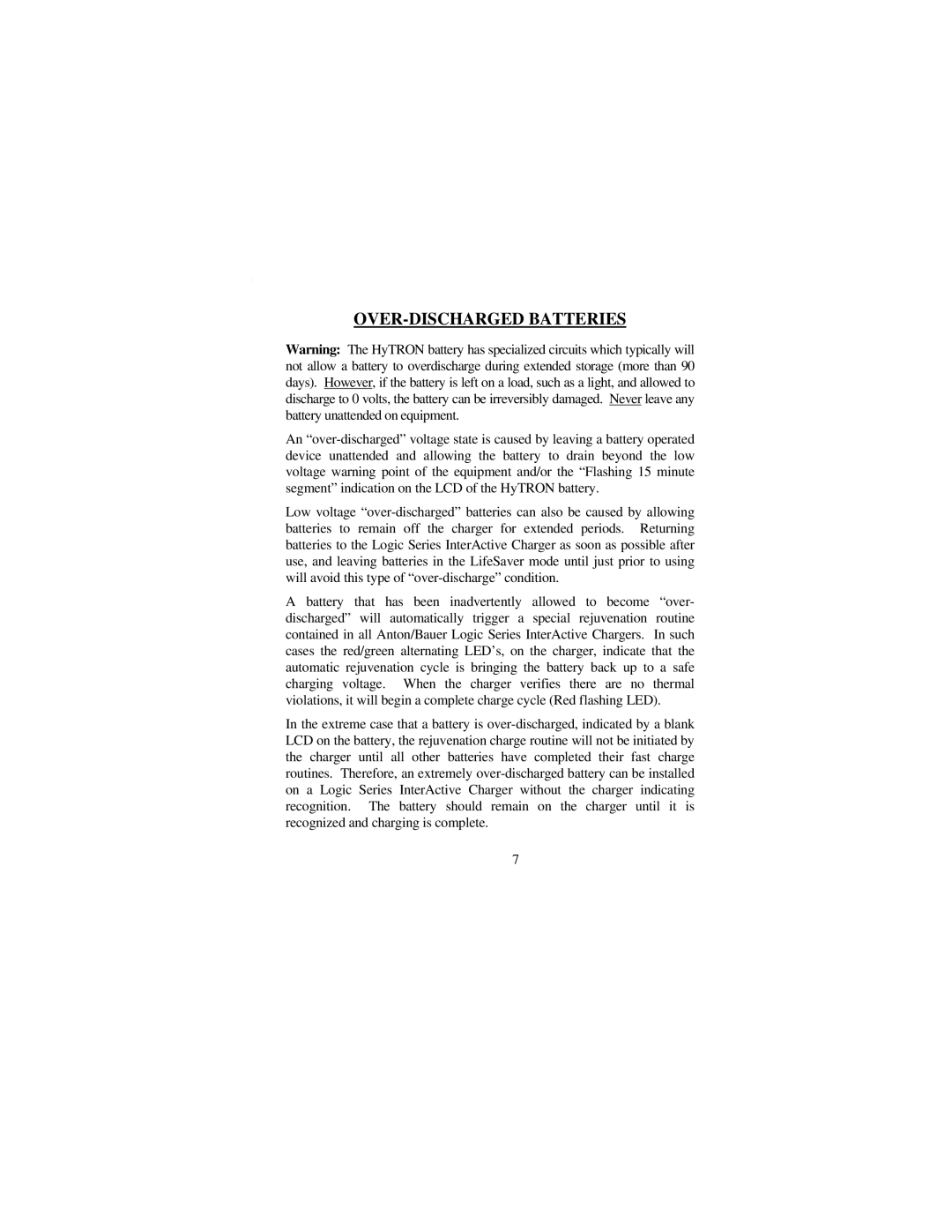
OVER-DISCHARGED BATTERIES
Warning: The HyTRON battery has specialized circuits which typically will not allow a battery to overdischarge during extended storage (more than 90 days). However, if the battery is left on a load, such as a light, and allowed to discharge to 0 volts, the battery can be irreversibly damaged. Never leave any battery unattended on equipment.
An “over-discharged” voltage state is caused by leaving a battery operated device unattended and allowing the battery to drain beyond the low voltage warning point of the equipment and/or the “Flashing 15 minute segment” indication on the LCD of the HyTRON battery.
Low voltage “over-discharged” batteries can also be caused by allowing batteries to remain off the charger for extended periods. Returning batteries to the Logic Series InterActive Charger as soon as possible after use, and leaving batteries in the LifeSaver mode until just prior to using will avoid this type of “over-discharge” condition.
A battery that has been inadvertently allowed to become “over- discharged” will automatically trigger a special rejuvenation routine contained in all Anton/Bauer Logic Series InterActive Chargers. In such cases the red/green alternating LED’s, on the charger, indicate that the automatic rejuvenation cycle is bringing the battery back up to a safe charging voltage. When the charger verifies there are no thermal violations, it will begin a complete charge cycle (Red flashing LED).
In the extreme case that a battery is over-discharged, indicated by a blank LCD on the battery, the rejuvenation charge routine will not be initiated by the charger until all other batteries have completed their fast charge routines. Therefore, an extremely over-discharged battery can be installed on a Logic Series InterActive Charger without the charger indicating recognition. The battery should remain on the charger until it is recognized and charging is complete.

